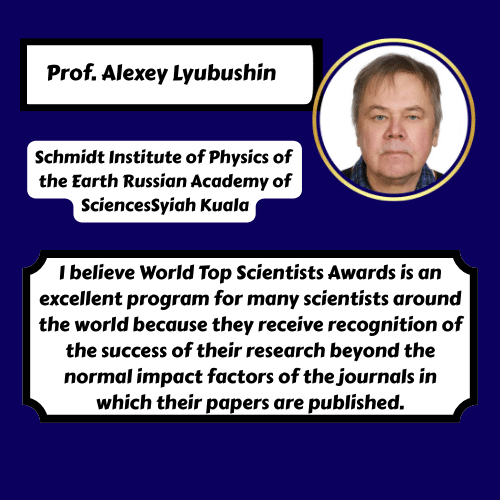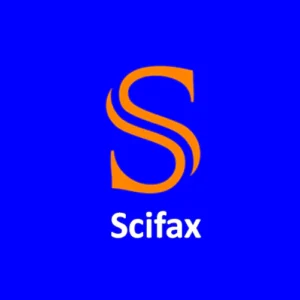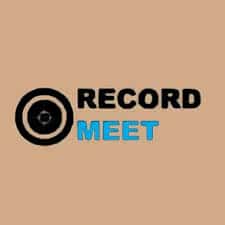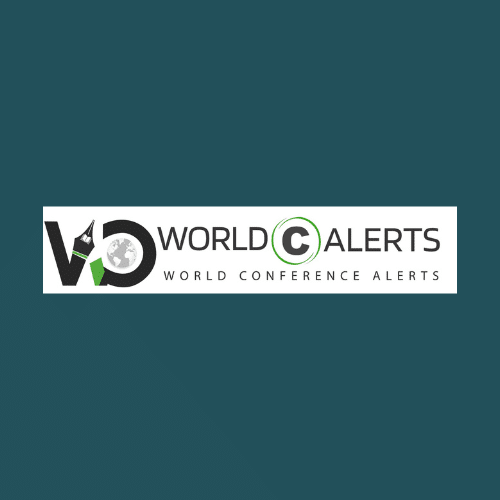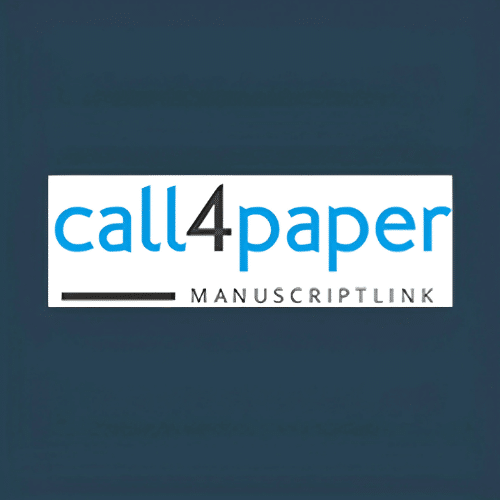World Top Scientist Awards

About the Event
About the Award
The World Top Scientists Awards could be a recognition program that aims to recognize and celebrate individualities or brigades who have made significant benefactions to the field of wisdom and technology through innovative and poignant exploration. The awards could be offered in confluence with the World Top Scientists Awards and could be designed to fete excellence in colorful orders, similar as Artificial Intelligence and Machine Learning Biomedical Engineering Renewable Energy and Sustainability Nanotechnology and Accoutrements Science Computer Science and Information Technology Physics and Astronomy Environmental Science and Climate Change The World Top Scientists Awards could aim to Foster invention and creativity in the field of wisdom and technology by feting and celebrating the stylish and brightest experimenters and brigades. Promote the exchange of ideas and knowledge by bringing together experimenters, scientists, and other experts in these fields. Encourage collaboration and hookups between experimenters, universities, and assiduity mates. give openings for experimenters to gain recognition and visibility for their work. Contribute to the advancement of wisdom and technology by supporting innovative and poignant exploration. The World Top Scientists Awards could be open to individualities or brigades from around the world who have made significant benefactions to the field of wisdom and technology. The award donors could be named by a panel of experts in the applicable fields and could admit recognition and prizes during World Top Scientists Awards. The World Top Scientists Awards could give a precious occasion for experimenters to showcase their work and to network with other experts in their fields.
What does the award include
The profile of the award winners of each category be listed on our website and it will be maintained forever.
The certificate, medal, and Memento, and photographs will be a testimony. Further, this recognition and additional proof of hard work and achievements must be globally accessible for Researchers and hence will be available online 24/7.
It’s an indicator of success Enhances the reputation improves the benchmark –it’s a matter of pride – Motivation – Raises the visibility of the success.
Researcher Awards
Researcher Awards
Young Scientist Award: This Awarded to researchers who are in the early stage of their career for outstanding research in their field. This award is bestowed in the motive of identifying and Recognizing the young Researchers around the world who have the potential to become leaders n their field. The qualification of the nominee must be recognized and documented by corresponding successes in research contributions, such as Collaborations and Publications. Eligibility: A working professional can nominate for the Award. Research grants for medical students also awarded as scientist awards. He must be below 35 years of age as of the award date.
Best Researcher Award: This Awarded to the Best researcher in any field for their significant contribution to the advancement in their field of expertise. The qualification of the nominee must be recognized and documented by corresponding successes in research contributions, such as Collaborations, Contracts, and Publications. Eligibility: A working professional can nominate for the Award. There is no age limit for Best Researcher Award category.
Outstanding Scientist Award: Exceptional research record of significant contribution to the institute/company. The qualification of the nominee must be recognized and documented by corresponding successes in research contributions, such as Grants, Patents, Collaborations, Contracts, books, and Publications. Eligibility: A working professional can nominate for the Award. He must be above 40 years of age as of the award date.
Lifetime Achievement Award: This awards an Exceptional research record of significant contribution to the institute/company. The qualification of the nominee must be recognized and documented by corresponding successes in research contributions, such as Grants, Patents, Collaborations, Contracts, books, and Publications. Eligibility: A working professional can nominate for the Award. He must be above 40 years of age as of the award date.
Women Researcher Award: Awarded to the Best women researcher in any field for their significant contribution to the advancement in their field of expertise. The qualification of the nominee must be recognized and documented by corresponding successes in research contributions, such as Collaborations, Contracts, and Publications. Eligibility: A working professional can nominate for the Award.
Best Innovation Award: This Awarded to researchers/institutes/Organizations who are in the early stage of their careers for outstanding innovation in their field. This award is bestowed with the motive of identifying and Recognizing the Researchers/institutes/organizations around the world who have the potential to become leaders n their field. The qualification of the nominee must be recognized and documented by corresponding successes in research contributions, such as Collaborations and Publications. Eligibility: A working professional/ Institute/ Organization can nominate for the Award.
Best Faculty Award: This Awarded to the Best Faculty in any field for their significant contribution to the advancement in their field of expertise. The qualification of the nominee must be recognized and documented by corresponding successes in research/ Academic contributions, such as Collaborations, Contracts, and Publications. Eligibility: A working professional can nominate for the Award.
Best Scholar Award: This Awarded to Scholar/ Student who are in the early stage of their career for outstanding research in their field. This award is bestowed in the motive of identifying and Recognizing the young Researchers scholar/ Student around the world who have the potential to become leaders n their field. The qualification of the nominee must be recognized and documented by corresponding successes in research contributions, such as Publications. Eligibility: A scholar can nominate for the Award.
Institute/ Organization Awards
Institute/ Organization Awards:
Excellence in Innovation: This Awarded to Institute/ Organization/ Business/ Industries who are in the early stage of their career for outstanding innovation in their field. This award is bestowed in the motive of identifying and Recognizing the Institute/ Organization/ Business/ Industries around the world who have the potential to become leaders n their field. The qualification of the nominee must be recognized and documented by corresponding successes in innovation contribution, such as Innovation, Patent, Entrepreneurship, and New project development. Eligibility: A Institute /Organization/ Industries can nominate for the Award.
Excellence in Research: This Awarded to Institute/ Organization/ Business/ Industries who are in the early stage of their career for outstanding research in their field. This award is bestowed in the motive of identifying and Recognizing the Institute/ Organization/ Business/ Industries around the world who have the potential to become leaders n their field. The qualification of the nominee must be recognized and documented by corresponding successes in research contribution, such as publication, research Grants, Research & developments, Entrepreneurship development. Eligibility: A Institute /Organization/ Industries can nominate for the Award.
Excellence Award (Any Scientific field): This Awarded to Institute/ Organization/ Business/ Industries who are in the early stage of their career for outstanding excellence in their field. This award is bestowed in the motive of identifying and Recognizing the Institute/ Organization/ Business/ Industries around the world who have the potential to become leaders n their field. The qualification of the nominee must be recognized and documented by corresponding successes in their field contribution, such as Advancement, New Technology, and Development. Eligibility: A Institute /Organization/ Industries can nominate for the Award.
Best Research /Innovation Extension activity: This Awarded to Institute/ Organization/ Business/ Industries who are in the early stage of their career for outstanding Research/ innovation in their field. This award is bestowed in the motive of identifying and Recognizing the Institute/ Organization/ Business/ Industries around the world who have the potential to become leaders n their field. The qualification of the nominee must be recognized and documented by corresponding successes in their field contribution, such as Extension, Public useful innovation /Research Activities, Innovative services, Awareness programs, and New Technology awareness Development. Eligibility: A Institute /Organization/ Industries can nominate for the Award.
Date and location
Date and location
Global Recognition Series – 2026 & 2027
Official Certification of Recognition will be issued to all selected laureates immediately following the announcement of results.
32nd Edition of World Top Scientists Awards | 27–28 March 2026 | Global Recognition Round
33rd Edition of World Top Scientists Awards | 29–30 April 2026 | Global Recognition Round
34th Edition of World Top Scientists Awards | 26–27 May 2026 | Global Recognition Round
35th Edition of World Top Scientists Awards | 28–29 June 2026 | Global Recognition Round
36th Edition of World Top Scientists Awards | 29–30 July 2026 | Global Recognition Round
37th Edition of World Top Scientists Awards | 27–28 August 2026 | Global Recognition Round
38th Edition of World Top Scientists Awards | 26–27 September 2026 | Global Recognition Round
39th Edition of World Top Scientists Awards | 28–29 October 2026 | Global Recognition Round
40th Edition of World Top Scientists Awards | 29–30 November 2026 | Global Recognition Round
41st Edition of World Top Scientists Awards | 26–27 December 2026 | Global Recognition Round
42nd Edition of World Top Scientists Awards | 25–26 January 2027 | Global Recognition Round
43rd Edition of World Top Scientists Awards | 27–28 February 2027 | Global Recognition Round
Upcoming Annual World Research Award Summit – World Top Scientists Awards.
2026 Annual World Research Award Summit – World Top Scientists Awards | 29–30 December 2026 | Singapore, Singapore
2027 Annual World Research Award Summit – World Top Scientists Awards | 28–30 December 2027 | Dubai, United Arab Emirates
2028 Annual World Research Award Summit – World Top Scientists Awards | 29–30 December 2028 | London, United Kingdom
How to Apply
How to Apply
The Candidates with eligibility can click the "Nominate /Submit Your Profile (CV) Now" button and fill up the online submission form and Submit it.
This section describes the total Research Awards processes in step by steps:
- Received Nomination documents will be sent for the screening process
- Acknowledgment intimation via email will be communicated to the Nominee
- The team may ask the proof for the credits mentioned in the Resume.
- Cross verifying the documents submitted & forwarding it to the Committee.
- The selected candidate indicated through email. Also, the selected nominees will be checked anytime on the website track of my submission.
- Event and Celebration Registration
- Release of the winners list in the official web page
- Award presentation ceremony
- Release of the Award winners and his profile Report.
Registration
Registration Details
Registration Covers
- An exclusive web page for a highly rated profile of the award winners will always be available online.
- Participation in Award event Session and Keynote session.
- Certificate, Memento, and Photographs.
- Event Kit, Tea, Coffee & Snacks.
- Veg & Non-Veg Lunch during the Event.
- Event and Celebration Registration
- Release of the winners list in the official web page
- Award presentation ceremony
- Release of the Award winners and his profile Report.
Registration Procedure
Click the “Register Now” button at the award page and enter your Submission ID in the Search Box
Your Submissions will be listed on that page. You can find the Register Now link beside your submission. Click the link and now you will be redirected to the Award registration form where you can make your registration using credit/debit cards
Committee Members
Committee Members
| Title | First Name | Last Name | Institution/Organization | Country |
|---|---|---|---|---|
| Mr | Mekuria | Bereded | Salale University | Ethiopia |
| Dr | Pravesh | Padamwar | Indian Institute of Management Raipur | India |
| Dr | Logesh | Rajan | JSS College of Pharmacy, JSS Academy of Higher Education and Research | India |
| Dr | Marwan | Alssadek | Coventry University | United Kingdom |
| Dr | Jianneng | Liang | Helmholtz-Institut Ulm | Germany |
| Prof Dr | Anelise | Formagio | UFGD | Brazil |
| Ms | Gabriela | Naibo | UFRGS | Brazil |
| Prof Dr | Marina | Mitterer-Daltoé | UTFPR- Federal University of Technology of Paraná | Brazil |
| Assoc Prof Dr | Mehdi | Ghabooli | Malayer University | Iran |
| Dr | Ramin | Lotfi | DARI | Iran |
| Prof Dr | Silvia | Moura | ITAL - FRUTHOTEC | Brazil |
| Assoc Prof Dr | Albert | Babaev | Институт физики Дагестанского федерального исследовательского центра РАН | Russia |
| Assist Prof Dr | Maheswaran | R | Periyar University | India |
| Prof | Sudha | Jimson | Sree Balaji Dental College & Hospital | India |
| Dr | Moustafa Samir | Abusaif | Al-Azhar University, Faculty of Science | Egypt |
| Mr | S. M. Moazzem | Hossen | Department of Pharmacy, University of Chittagong | Bangladesh |
| Prof | Mandava | Venkata Basaveswara Rao | Krishna University | India |
| Prof Dr | Renato | Tomaš | University of Split, Faculty of Chemistry and Technology | Croatia |
| Prof | MGH | ZAIDI | G.B. Pant university of Agriculture & Technology | India |
| Mr | Muhammad | Al-Fiydh | Directorate of Education AL-Diwania | Iraq |
| Assoc Prof Dr | AUSTIN | GBASOUZOR | CHUKWUEMEKA ODUMEGWU OJUKWU UNIVERSITY,PMB 02 ULI ANAMBRA STATE | Nigeria |
| Mr | Christos | Roumeliotis | University of Western Macedonia | Greece |
| Mr | Jinhwee | Kil | Korea University | South Korea |
| Dr | Baluku | Innocent | Global health Uganda | Uganda |
| Mr | Arsham | Asgari | Research Associate | Germany |
| Title | First Name | Last Name | Institution/Organization | Country |
Instructions
General Instructions to Nominees
- The candidates with proper eligibility are requested to submit the online nomination form in order to get nominated for the award
- If your nomination is accepted by our Judges, we will send you an email regarding your profile selection
- Awardees must register for the event
- Dress Code: Award Recipients have to wear a formal dress. There are no restrictions on color or design. The audience attending only the ceremony can wear clothing of their own choice.
- General Information: Each winner's name will be called & asked to collect their Awards on the Stage with an official photographer to capture the moments.
Terms & Conditions
Terms & Conditions
World Research Awards (WRA) Terms & Conditions Policy.
Privacy Policy
This awards Customer personal information for our legitimate business purposes, to process and respond to inquiries, and provide our services, to manage our relationship with editors, authors, institutional clients, service providers, and other business contacts, to market our services and subscription management. We do not sell, rent/ trade your personal information to third parties.
Relationship
World Research Awards (WRA) Operate a Customer Association Management and email list program, which we use to inform customers and other contacts about our services, including our publications and events. Such marketing messages may contain tracking technologies to track subscriber activity relating to engagement, demographics, and other data, and to build subscriber profiles.
Disclaimer
All editorial matters published on this website represent the opinions of the authors and not necessarily those of the Publisher with the publications. Statements and opinions expressed do not represent the official policies of the relevant associations unless so stated. Every effort has been made to ensure the accuracy of the material that appears on this website. Please ignore, however, that some errors may occur.
Responsibility
Delegates are personally responsible for their belongings at the venue. The Organizers will not be held accountable for any stolen or missing items belonging to Delegates, Speakers, or Attendees; due to any reason whatsoever.
Insurance
Registration fees that do not include insurance of any kind.
Press and Media
Press permission must be getting from the World Research Awards (WRA) Organizing Committee before the event. The press will not quote speakers or delegates unless they have obtained their approval in writing. This award is not associated with any commercial meeting company.
Transportation
Please note that any (or) all traffic and parking is the responsibility of the registrant.
Requesting an Invitation Letter
For security purposes, the letter of invitation will be sent only to those individuals who had registered for the award. Once your registration is complete, please contact support@worldtopscientists.com to request a personalized letter of invitation.
Cancellation Policy
If cancel this event for any reason, you will receive a credit for 100% of the registration fee paid. You may use this credit for another Primary healthcare award which must occur within one year from the date of cancellation.
Postponement Policy
If postpone an event for any reason and you are unable or indisposed to attend on rescheduled dates, you will receive a credit for 100% of the registration fee paid. You may use this credit for another World Research Awards (WRA) which must occur within one year from the date of postponement.
Transfer of registration
All fully paid registrations are transferable to other persons from the same organization if the registered person is unable to attend the event. The registered person must make transfers in writing to support@worldtopscientists.com. Details must include the full name of an alternative person, their title, contact phone number, and email address. All other registration details will be assigned to the new person unless otherwise specified. Registration can be transferred from one award to another award of World Research Awards (WRA) if the person is unable to attend one of the meetings. However, Registration cannot be transferred if it will be intimated within 14 days of the particular award. The transferred registrations will not be eligible for Refund.
Visa Information
Keeping given the increased security measures, we would like to request all the participants to apply for Visa as soon as possible. NESIN awards will not directly contact embassies and consulates on behalf of visa applicants. All delegates or invitees should apply for Business Visa only. Important note for failed visa applications: Visa issues cannot come under the consideration of the cancellation policy of NESIN awards, including the inability to obtain a visa.
Refund Policy
Regarding refunds, all bank charges will be for the registrant's account. All cancellations or modifications of registration must make in writing to support@worldtopscientists.com
If the registrant is unable to attend and is not in a position to transfer his/her participation to another person or event, then the following refund arrangements apply:
Keeping given advance payments towards Venue, Printing, Shipping, Hotels and other overheads, we had to keep Refund Policy is as following conditions,
Before 60 days of the Award: Eligible for Full Refund less $100 Service Fee
Within 60-30 days of Award: Eligible for 50% of payment Refund
Within 30 days of Award: Not eligible for Refund
E-Poster Payments will not be refunded.
Accommodation Cancellation Policy
Accommodation Providers such as hotels have their cancellation policies, and they generally apply when cancellations are made less than 30 days before arrival. Please contact us as soon as possible if you wish to cancel or amend your accommodation. World Research Awards (WRA) will advise the cancellation policy of your accommodation provider, before withdrawing or changing your booking, to ensure you are fully aware of any non-refundable deposits.
Our Authorisation Policy
By registering for the event, award and award, you grant World Research Awards (WRA) permission to photograph, film, record, and use your name, likeness, image, voice, and comments. These materials may be published, reproduced, exhibited, distributed, broadcasted, edited, and/or digitized in publications, advertising materials, or any other form worldwide without compensation. Please note that the taking of photographs and/or videotaping during any session is prohibited. If you have any queries, please feel free to contact us.
Sponsorship
Sponsorship
World Research Awards (WRA)World Research Awards (WRA)
warmly invites you to sponsor or exhibit at World Top Scientists Awards. We expect participants more than 200 numbers for our World Top Scientists Awards will provide an opportunity to hear and meet/ads to Researchers, Practitioners, and Business Professionals to share expertise, foster collaborations, and assess rising innovations across the world in the core area of mechanical engineering.
Sponsorship Details
Diamond Sponsorship
- Acknowledgment during the opening of the award
- Complimentary Booth of size 10 meters square
- Four (4) delegate’s complimentary registrations with lunch
- Include marketing document in the delegate pack
- Logo on Award website, Banners, Backdrop, and award proceedings
- One exhibition stand (1×1 meters) for the award
- One full cover page size ad in award proceedings
- Opportunities for Short speech at events
- Opportunity to sponsors award kit
- Opportunity to sponsors award lanyards, ID cards
- Opportunity to sponsors award lunch
- Recognition in video ads
- 150-word company profile and contact details in the delegate pack
Platinum Sponsorship
- Three (3) delegate’s complimentary registrations with lunch
- Recognition in video ads
- Opportunity to sponsors award lunch
- Opportunity to sponsors award lanyards, ID cards
- Opportunity to sponsors award kit
- Opportunities for Short speech at events
- One full-page size ad in award proceedings
- One exhibition stand (1×1 meters) for the award
- Logo on Award website, Banners, Backdrop, and award proceedings
- Include marketing document in the delegate pack
- Complimentary Booth of size 10 meters square
- Acknowledgment during the opening of the award
- 100-word company profile and contact details in the delegate pack
Gold Sponsorship
- Two (2) delegate’s complimentary registrations with lunch
- Opportunities for Short speech at events
- Logo on Award website, Banners, Backdrop, and award proceedings
- Include marketing document in the delegate pack
- Complimentary Booth of size 10 meters square
- Acknowledgment during the opening of the award
- 100-word company profile and contact details in the delegate pack
- ½ page size ad in award proceedings
Silver Sponsorship
- Acknowledgment during the opening of the award
- One(1) delegate’s complimentary registrations with lunch
- Include marketing document in the delegate pack
- Logo on Award website, Banners, Backdrop, and award proceedings
- ¼ page size ad in award proceedings
- 100-word company profile and contact details in the delegate pack
Individual Sponsorship
- Acknowledgment during the opening of the award
- One(1) delegate’s complimentary registrations with lunch
Sponsorship Registration Fees
| Details | Registration fees |
| Diamond Sponsorship | USD 2999 |
| Platinum Sponsorship | USD 2499 |
| Gold Sponsorship | USD 1999 |
| Silver Sponsorship | USD 1499 |
| Individual Sponsorship | USD 999 |
Exhibitions
Exhibitions
Exhibit your Products & Services
Exhibit your Products & Services in our Event of the World Top Scientists Awards. Exhibitors are welcomed from Commercial and Non-Commercial Organizations related to New Science Inventions.
The best platform to develop new partnerships & collaborations.
Best location to speed up your route into every territory in the World.
Our exhibitor booths were visited 4-5 times by 80% of the attendees during the award.
Network development with both Academia and Business.
Exhibitor benefits
Exhibit booth of Size-3X3 sqm.
Promotion of your logo/Company Name/Brand Name through the award website.
Promotional video on company products during the award (Post session and Breaks).
Logo recognition in the Scientific program, Award banner, and flyer.
One A4 flyer inserts into the award kit.
An opportunity to sponsor 1 Poster Presentation Award.
Contact Us
For Enquiries, Contact us through award mail.
Target countries
Target Countries
Afghanistan| Albania| Algeria| Andorra | Angola| Antigua and Barbuda| Argentina| Armenia| Australia| Austria| Azerbaijan| Bahamas| Bahrain| Bangladesh| Barbado| Belarus| Belgium| Belize| Benin| Bhutan| Bolivia| Bosnia and Herzegovina| Botswana| Brazil| Brunei| Bulgaria| Burkina Faso| Burundi| Cabo Verde| Cambodia| Cameroon| Canada| Central African Republic| Chad| Chile| China| Colombia| Comoros| Democratic Republic of the Congo| Republic of the Congo| Costa Rica| Cote d'Ivoire| Croatia| Cuba| Cyprus| Czech Republic| Denmark| Djibouti| Dominica| Dominican Republic| Ecuador| Egypt| El Salvador| Equatorial Guinea| Eritrea| Estonia| Eswatini| Ethiopia| Fiji| Finland| France| Gabon| Gambia| Georgia| Germany| Ghana| Greece| Grenada| Guatemala| Guinea| Guinea-Bissau| Guyana| Haiti| Honduras| Hungary| Iceland| India| Indonesia| Iran| Iraq| Ireland| Israel| Italy| Jamaica| Japan| Jordan| Kazakhstan| Kenya| Kiribati| Kosovo| Kuwait| Kyrgyzstan| Laos| Latvia| Lebanon| Lesotho| Liberia| Libya| Liechtenstein| Lithuania| Luxembourg| Madagascar| Malawi| Malaysia| Maldives| Mali| Malta| Marshall Islands| Mauritania| Mauritius| Mexico| Micronesia| Moldova| Monaco| Mongolia| Montenegro| Morocco| Mozambique| Myanmar (Burma)| Namibia| Nauru| Nepal| Netherlands| New Zealand| Nicaragua| Niger| Nigeria| North Korea| North Macedonia| Norway| Oman| Pakistan| Palau| Panama| Papua New Guinea| Paraguay| Peru| Philippines| Poland| Portugal| Qatar| Romania| Russia| Rwanda| Saint Kitts and Nevis| Saint Lucia| Saint Vincent and the Grenadines| Samoa| San Marino| Sao Tome and Principe| Saudi Arabia| Senegal| Serbia| Seychelles| Sierra Leone| Singapore| Slovakia| Slovenia| Solomon Islands| Somalia| South Africa| South Korea| South Sudan| Spain| Sri Lanka| Sudan| Suriname| Sweden| Switzerland| Syria| Taiwan| Tajikistan| Tanzania| Thailand| Timor-Leste| Togo| Tonga| Trinidad and Tobago| Tunisia| Turkey| Turkmenistan| Tuvalu| Uganda| Ukraine| United Arab Emirates|United Kingdom| United States| Uruguay| Uzbekistan| Vanuatu| Vatican City| Venezuela| Vietnam| Yemen| Zambia| Zimbabwe.














